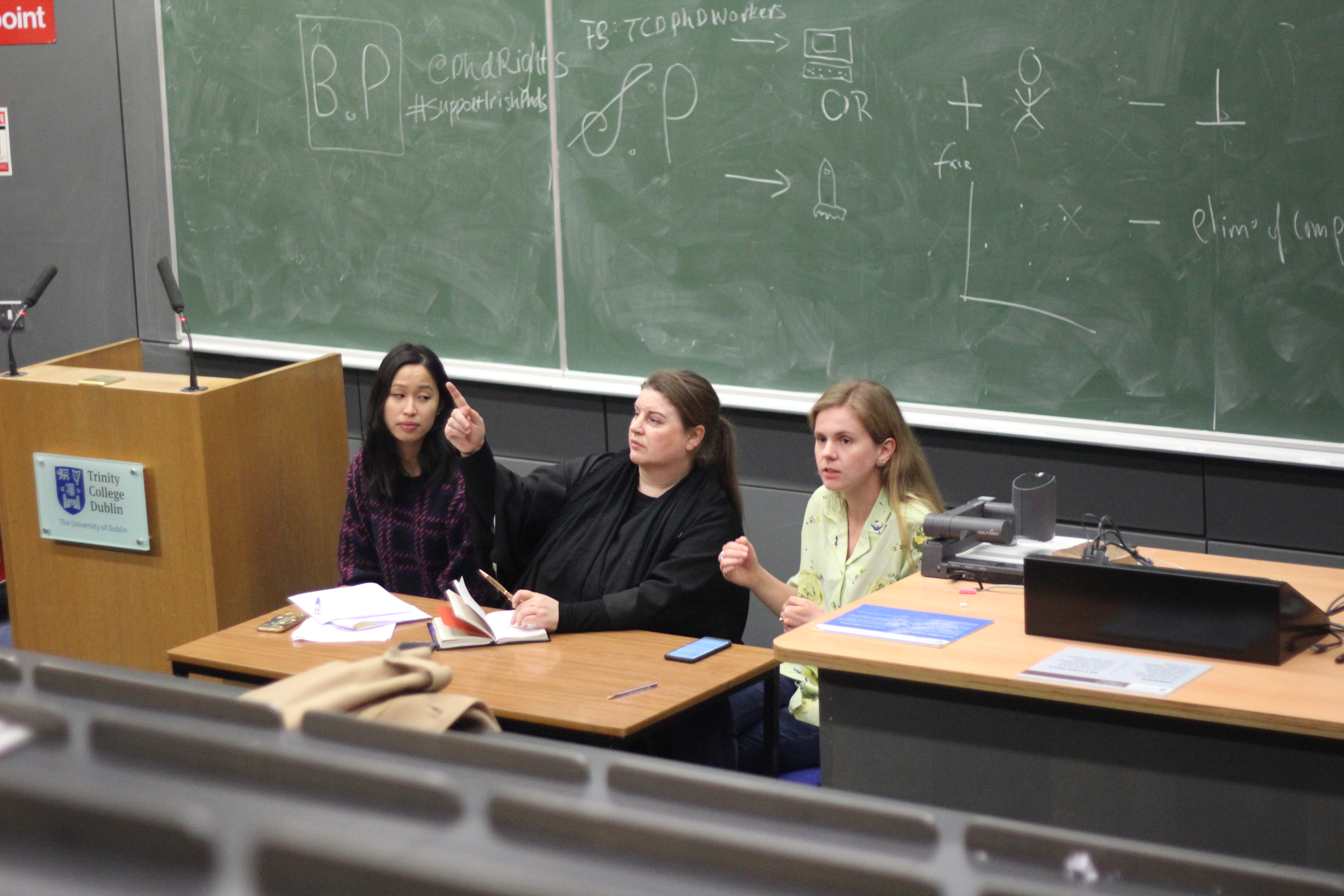PhD students have expressed their anger during a townhall meeting this evening at a decision approved by College’s finance committee to cut the pay of casual staff who work as lab demonstrators.
The decision to cut pay was temporarily reversed on Tuesday at a meeting of the finance committee, and a final decision has been deferred to a future meeting. However, several PhD students tonight said they felt they had been treated with contempt by Trinity throughout the process and expressed their concern at what the final decision on the issue might bring.
One PhD student in attendance at the townhall meeting said that the “whole process is so incredibly opaque”, adding that if “anything close” to the proposed cuts was brought forward “we need to have the option of walking off the job”.
Others in the room were enthusiastic about the idea of strikes, with another PhD student in attendance stating that Teaching Assistants would “have a very strong bargaining chip” should they strike, asserting that they are “worth a lot more” than they are currently paid. Some expressed doubts however, stating that they did not believe they would be paid if they were to strike.
All expressed a feeling of being treated with disrespect, with one stating that she was “not respected as a human being or as a worker or as student”, and another said that “every interaction with upper members of the staff is like someone spitting in your face”.
The meeting was organised by Trinity College Dublin Students’ Union (TCDSU) and the Graduate Students’ Union (GSU) and was co-chaired by TCDSU President Laura Beston and GSU Vice-President Gisèle Scanlon.
Opening the meeting, Scanlon said she wanted to offer a “safe space” to hear people’s “worries and concerns”.
The role of the GSU in the process was criticised tonight with several in attendance asking why they only found out about the decision this week, given the pay cuts were originally approved in November and the GSU President sits on the finance committee. Beston defended the role of the GSU saying that the issue had only been brought as an issue for nothing, rather than an item for discussion, but that Oye “should have picked up” on the issue at the time.
Oye joined the meeting later on and addressed these criticisms saying, “I will admit that I missed it”, but said that placing the change among so many other documents had been a “sneaky thing to do” and “it really spoke to the mindset of the college and their attitude towards student partnerships”.
There was also evidence of tension within the GSU leadership, with Scanlon repeatedly pressing Oye on not knowing the hourly rate of casual staff. Scanlon stated: “Why don’t you know this Shaz? You are our representative, this is how people pay for their food and their rents.”
Oye made attempts throughout the meeting to temper people’s expectations stating: “There is no money, there is no investment in higher education” and “there are a lot of steps between nothing and striking”.
College’s original decision was to cut pay rates for demonstrators, who guide students working in laboratories, from €21.02 down to a bracket of €19 to €17, representing a potential reduction of around 20%.
Around 70 protesters gathered outside the meeting of College’s finance committee in House 1 on Tuesday in response to the pay cut and the committee took the decision to temporarily reverse the cut and bring the issue as a item for discussion at a future meeting.
The pay cut was introduced to bring the hourly rate of casual staff in line with that of casual staff. However, speaking to Trinity News during the protest, Shaz Oye stated that given the fact that casual staff “dont enjoy the same protections and salaries as permanent staff” their hourly rate should be different.
Tonight’s townhall meeting was held from 6pm in the Maxwell theatre in Trinity’s Hamilton building. There was an agreement that further discussion would take place at the next meeting of the GSU Council.






